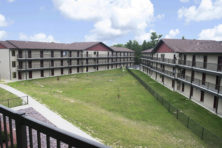Sustainability 2019: Can Home Sharing Fill A Gap?
- Share
- Tweet
- Pin
- Share
by Ashley Lusk

I moved to Door County in 2009, and like so many other young workers, I struggled to find a place to live. Jobs were plentiful, but housing was scarce.
All six potential employers I interviewed with offered me a job – contingent on me finding a place to live. Fortunately, I was able to find a small cottage in Ephraim for $650 a month. Because the rent was way outside my budget, I shared the space with my boyfriend and three J-1 students whose housing had fallen through. It was a chaotic and cramped living situation.
During the last 10 years, I’ve lived in some pretty awful apartments throughout the county. Anything in my price range ended up being dumpy and run down. Though I was working multiple jobs, I couldn’t afford more than $500 a month. After taxes, my monthly income was somewhere around $1,500. When I added up my basic expenses – medical bills, car insurance, health insurance, utilities and groceries – I wasn’t left with much to leeway for housing. Almost any young person who moves to this county can attest to a similar budget crunch and housing shortage.
Enter the idea of homesharing, an arrangement in which two or more unrelated people share a house or apartment to their mutual advantage. Each person has a private bedroom, but common areas such as the kitchen and living room are shared. Household responsibilities can be shared, or services can be exchanged for reduced rent or free rent.
Homesharing originated in the United States in the late 1970s, but it grew more popular in Europe by the early 1980s and has since spread to Australia, Canada, France, Germany, Spain, Japan, Switzerland and the UK. In a case study, the first match in the UK paired an elderly woman, Josie, with a young working man, Trevor. Josie had recently suffered a stroke and needed support at home. Trevor lived with Josie for three years until she was able to regain her independence.
Some homesharers have extra room in their home and like the idea of having someone around the house. Some people need help with household chores to remain living comfortably in their home. Others may want to supplement their income or help someone save money by offering affordable housing. Homesharing offers companionship and security to those who don’t like living alone.
Successful homesharing programs often involve senior citizens. According to the U.S. Census Bureau, senior citizens make up 28.9 percent of Door County’s population, compared to 15.6 percent nationwide. With the county’s housing shortage and the aging population, establishing a homesharing program could be a win-win situation.
I’ve been working with the geriatric community for many years now, visiting their homes as a personal trainer. My role can shift from trainer to computer tutor to furniture mover to printer fixer to errand runner. I also bridge the gap between generations. One of my elderly clients recently asked me to explain what twerking is and what hashtags are for. Let’s just say that the conversation ended with an 85-year-old man trying to twerk in his kitchen. All kidding aside, seniors sometimes have trouble keeping up with technology, which leaves them feeling frustrated and helpless. A young, patient homesharer could be exactly what they need.
I’ve done a lot of research about how to establish a homesharing program in Door County, and I’ve found that there are many resources available to help in creating a successful program. The National Shared Housing Resource Center, for example, offers a guide book for a fee, and it recommends attending a conference in Vermont called Training for Emerging Homesharing Programs.
Establishing a successful homesharing program in Door County could be a low-cost path to chipping away at the housing shortage. A simple website could connect homeseekers with homesharers.
And how would it work once it’s up and running? The homesharing application process requires a criminal background check and three personal references. The homesharer and homeseeker also need to complete a questionnaire that helps to match like-minded individuals. Before a homesharing relationship is established, both parties sign an agreement stating exactly what their expectations are of their living situation.
If you’re interested in helping to sponsor such a program or getting involved with Door County Homesharing, contact Ashley Lusk at [email protected].


